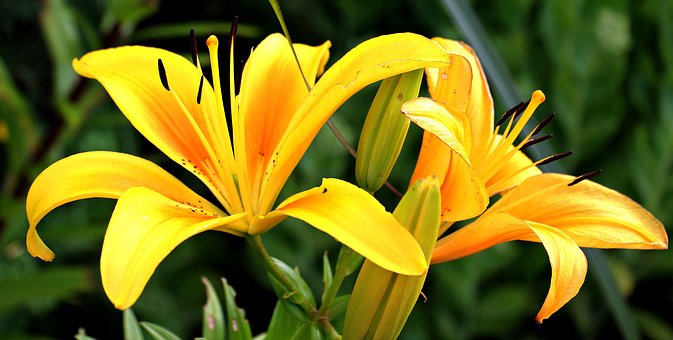All 2nd Grade Science Resources
Example Questions
Example Question #1 : Investigate Materials And Observable Properties
What are the observable properties that we can use to describe materials?
Temperature, weight, density, and volume
Color, width, texture, and volume
Color, texture, hardness, and flexibility
Length, width, and height
Color, texture, hardness, and flexibility
Observable properties are characteristics or things about materials or objects that we can describe using our five senses. Color, texture, hardness, and flexibility are all things we can determine with our senses.
Example Question #6 : Physical Science
What does the word observable mean?
To be noticed
To be served
To go unnoticed
To serve someone
To be noticed
The term observable means to be noticed or perceived. If something is noticeable, I can touch it, taste it, see it, hear it, or feel it. We can observe the properties of a material and use it to determine what it is or how to classify it.
Example Question #7 : Physical Science
What is another term for materials? Example: I can observe the properties of different materials in the classroom.
Desks
Matter
Blankets
Chairs
Matter
Another term for materials is matter. Matter is what things are made of. All materials, objects, and living things are made of matter.
Example Question #2 : Investigate Materials And Observable Properties
Which object matches the list of observable properties below?

An apple
A basketball
A ping pong ball
A banana
A banana
The observable properties listed give us a clue to what the mystery object is. We know the object needs to be yellow, soft, smooth, and it should not bounce. An apple is typically not yellow, a ping pong ball IS bouncy, and basketballs are generally bouncy and orange, so they are not a match. That leaves a banana which meets all the observable properties.
Example Question #1 : Classification Of Materials
What is Janice describing with the observable properties data table below?






The object that Janice is describing is a die or pair of dice. They are bouncy, hard, smooth, and black and white. The other choices are black and white but don't meet the other observable properties.
Example Question #6 : Investigate Materials And Observable Properties
JR has a sunflower and a rose and wants to investigate their observable properties. Which data table matches the properties of the two objects?







Observable properties are characteristics of an object, person, or material. We use our five senses to make these observations. From the pictures, we can see what the two flowers look like and use this information to help match the correct data table.
Example Question #7 : Investigate Materials And Observable Properties
Cheryl has a ping pong ball and a basketball and wants to investigate their observable properties. Which data table matches the properties of the two objects?







The data table that matches the ping pong ball and basketball need to have observable properties that would describe those objects. Observable properties can be found by using your five senses. A ping pong ball is white, small, round, bouncy, hard, strong, and smooth. A basketball is orange, round, bouncy, hard, strong, and rough.
Example Question #8 : Investigate Materials And Observable Properties
I can investigate materials and use observable properties to describe, classify, and categorize them.
True
False
True
This is a true statement. We can use our five senses to observe things like the color, texture, taste, smell, and hardness of objects. This information allows us to describe objects, classify them, and categorize them.
Example Question #9 : Investigate Materials And Observable Properties
Observable properties include measurements like height, weight, temperature, and the volume of an object.
True
False
False
This is a false statement. The properties listed in the question do help scientists understand materials, and those characteristics describe them well, but they are not observable. Observable properties are things we can use our five senses to determine, the measurable properties in the question need a tool like a thermometer or a ruler to determine.
Example Question #10 : Investigate Materials And Observable Properties
Diana found a flower in her backyard and wants to investigate what it is. What flower is Diana describing with the observable properties data table below?

Daisy

Cactus

Lily

Lilac

Lilac

The flower that Diana likely found in her backyard is a lilac. The flower she describes using observable properties matches the image of the flower. They are both purple and green, soft, smooth, and would not bounce. Observable properties can be identified using our five senses and what Diana described appears to be lilacs.
All 2nd Grade Science Resources




